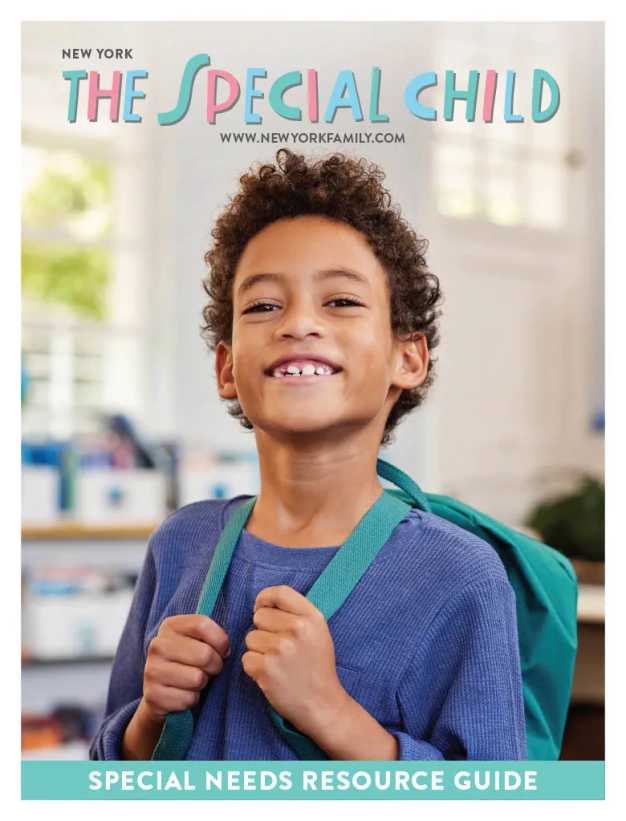
When choosing a camp for your child with special needs, there are things to think about that go beyond the usual camp search. Not every camp is set up to address the specific needs of each child so you want to make sure you do your research. Take the time to consider the following when choosing a camp for your special needs child.
Determine if a mainstream or special needs camp is the right environment for your child: “When deciding on a camp, the first thing you want to do is gather information. Reach out to some mainstream camps and see if they offer an inclusion program, and determine if your child meets the criteria. There are also many different types of special needs camps, some with campers with more complex disabilities and some specializing in campers who are able to handle some inclusion settings but still need that extra layer of support. Parents know their children better than anyone and gathering the greatest amount of information will definitely help determine the appropriate camp for their child,” says Josh Burke, director of Camp Jotoni, a day and overnight camp for children and adults with developmental and intellectual disabilities in Warren, NJ.
Think about what you would like your child to gain from the camp experience: “Consider what you would like your child to gain from the camp experience and ask the camp leadership how these goals will be met,” says Renee Flax, camper placement specialist for the American Camp Association, NY & NJ. “Do you want your child to have a leisure summer or to work on specific goals such as coming home more independent and with additional life skills?”
Make sure to consider the following when researching a camp: Elyse Miller, inclusion director of Buckley Day Camp, a traditional day camp in Roslyn, NY, suggests considering the following:
- Staff: Ask about how the staff is hired, how they are trained to work with children and how they handle bullying issues.
- Medical: Inquire about the medical staff. Is there a nurse on staff? How are medications administered and how are prescriptions handled?
- Dietary allergies/food: Ask how allergies and food restrictions are handled. How do they handle a picky eater? What are the options? Can they bring outside food or not?
- Communication: Ask questions about communication between the camp staff and parent. You are entrusting people to take care of your child. Don’t feel like any question is silly. Ask who you can contact at the camp. Can you speak with the division head? The nursing staff?
- Program: Ask about the camp program. What is the aquatics program like? What type of equipment is used during sports and games? Can adaptations be made without making it noticeable? How do you handle instruction? Do you do demonstrations?
- Grouping: How are children grouped? How flexible is the camp with grouping? If a child doesn’t get along with another child at school, do they separate? Are the groups single-sex or co-ed?
It’s important for parents and campers to see the camp before registering: Miller feels it’s 100 percent important to tour the camp with your child. “Let them walk around and ask questions. Seeing the camp helps children transition. We even take pictures of them at camp and make a book for them before the summer to get them excited. I tour with the other director so I can speak with the camper and talk to him or her to help them feel safe. Touring also gives the camp leadership team a chance to observe,” she says. Burke agrees that touring is important. “I believe it’s essential for parents and campers to see the camp facilities prior to attending. For campers it helps orient them to a new environment, something many campers with special needs can have issues with. It also allows that camp administration to see the camper in a camp setting to better assess if they can meet the camper’s needs,” he explains. “For parents, it’s also important to see their camper’s reaction to the new setting to help ease concerns they have of a new environment for their child.”
[gravityform id=”17″ title=”false” description=”false” ajax=”true”]
Be honest and open with the camp leadership about your child’s needs: Burke feels honesty with the camp is paramount when it comes to the success of a child at a special needs camp. “Being specific about a camper’s needs will only create a more successful experience for not only the camper but the family as well. It can give a family piece of mind knowing that the camp’s expectations of your camper are correct which allows the camp to prepare to meet their needs effectively. It can also help in determining if a camper is the right fit for that camp.” Miller feels parents should be as honest as they can be. “Often times, parents are afraid to say something about their child because they are afraid we won’t accept the child at camp. But the more honest you can be about your child, the more we can help your child succeed at camp,” she says.
It’s important for the camp leadership to meet the family: “Meeting with the family is crucial to a successful experience for the camper and their parents. It allows the parents to ask questions, meet the administration and feel comfortable with the people they are entrusting their camper to. It also allows the camp administrators to provide more specific information about the camp and its programming to determine if the camp is the right fit,” Burke says.












